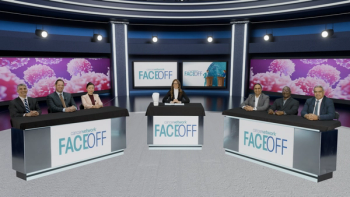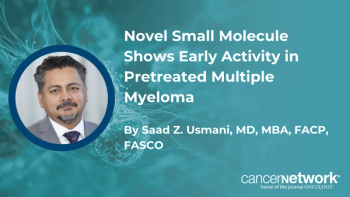
Opinion|Videos|October 25, 2024
Navigating the Challenges: Transitioning Patients from Community to Academic Settings in Multiple Myeloma Care
Panelists discuss how transitioning patients with multiple myeloma from community to academic settings faces challenges including communication gaps, differences in treatment approaches, patient reluctance, and logistical hurdles.
Advertisement
Episodes in this series

Video content above is prompted by the following:
- What are some challenges you are seeing when transitioning from community to academic settings
Newsletter
Stay up to date on recent advances in the multidisciplinary approach to cancer.
Advertisement
Related Content


Redefining Frontline Therapy in Undifferentiated Pleomorphic Sarcoma
Published: | Updated:


Advertisement
Advertisement
Trending on CancerNetwork
1
FDA Grants Fast Track Designation to SRN-101 for Recurrent High-Grade Glioma
2
Novel Small Molecule Shows Early Activity in Pretreated Multiple Myeloma
3
How has Immunotherapy Evolved in Breast Cancer Treatment?
4
FDA Issues Partial Clinical Hold on Lorigerlimab Trial in Gynecologic Cancers
5










































